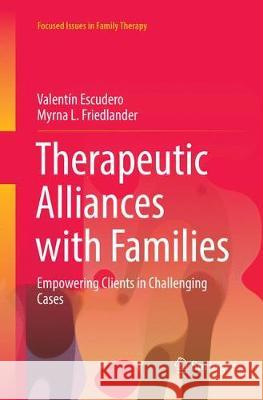Therapeutic Alliances with Families: Empowering Clients in Challenging Cases » ksi─ů┼╝ka
topmenu
Therapeutic Alliances with Families: Empowering Clients in Challenging Cases
ISBN-13: 9783319866093 / Angielski / Mi─Ökka / 2018 / 230 str.
Kategorie:
Kategorie BISAC:
Wydawca:
Springer
Seria wydawnicza:
J─Özyk:
Angielski
ISBN-13:
9783319866093
Rok wydania:
2018
Wydanie:
Softcover Repri
Ilo┼Ť─ç stron:
230
Oprawa:
Mi─Ökka
Wolumen├│w:
01











